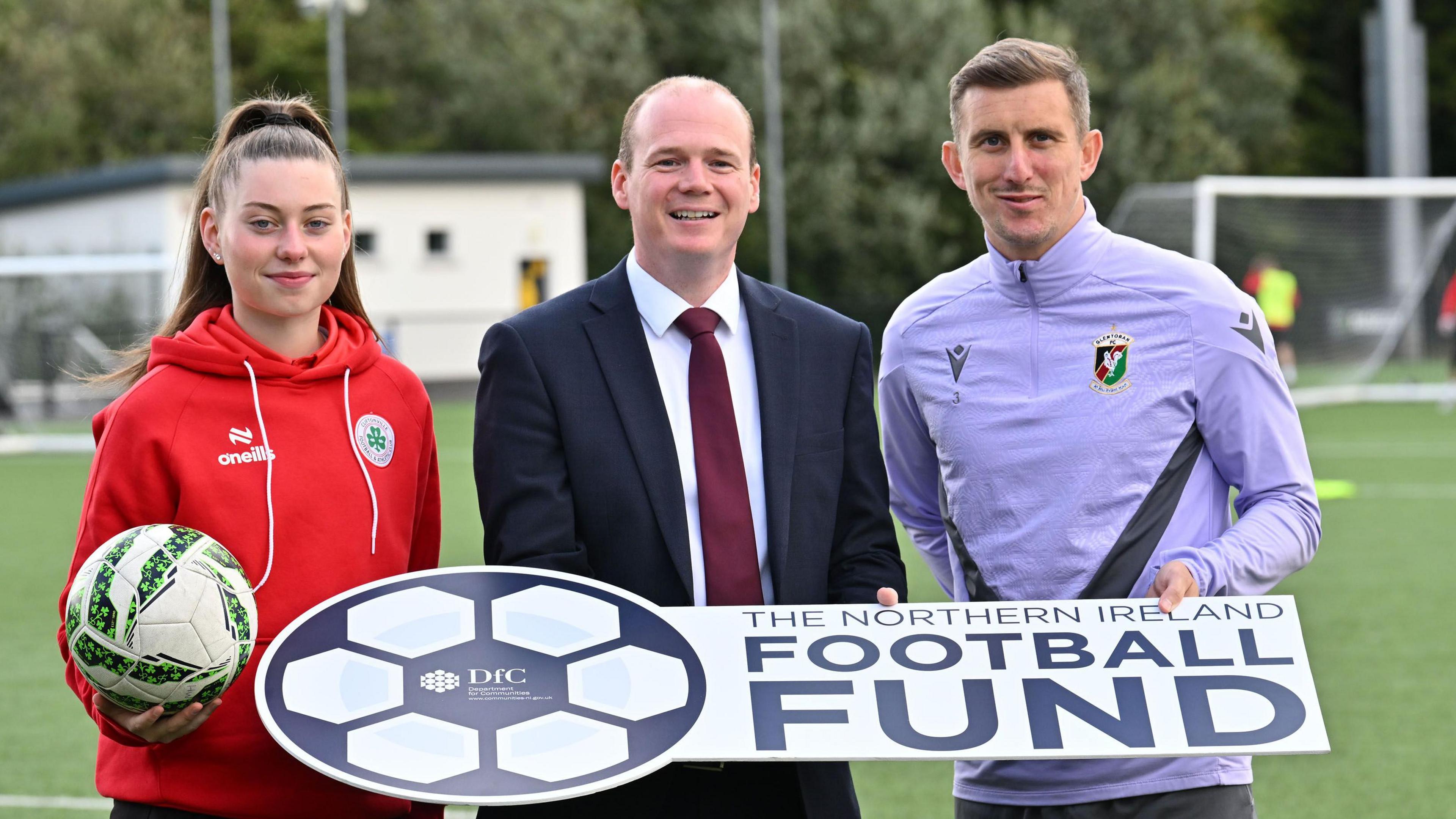'Department did not follow fund application guidelines'

In September, Communities Minister Gordon Lyons announced 20 clubs would progress to the next stage of the process
- Published
The Department for Communities (DfC) did not follow its own guidelines during the Northern Ireland Football Fund's application process, Crusaders treasurer Tommy Whiteside has claimed.
On Wednesday, Crusaders and Derry City released statements to confirm they would launch legal proceedings after their bids to progress to the next stage were rejected.
Last month, Communities Minister Gordon Lyons announced 20 clubs across Northern Ireland would move to the next round of the process, with three different tiers of funding available.
Speaking to Good Morning Ulster, Whiteside said Crusaders' reason for challenging the decision was "really procedural".
"As you know there were 10 bids from tier one, five of those - which is 100% that scored the minimum - were funded. In tier two there were 19 bids, of which 13 were funded, 70%.
"In tier three only two bids, which is 25%, and that unnatural balance has been caused by the department not following their own guidelines and in fact changing their guidelines after the bids were submitted."
When pressed about his claim that the department had changed its guidelines, Whiteside added: "We met with the department and they have admitted it to us."
In a statement to the BBC, the DfC said it would "consider its response to any action being brought as and when it has been formally notified".
Whiteside added that the scoring matrix used for considering applications was "fair and reasonable", but claimed parts of the process were not followed.
He also claimed only four clubs finished above Crusaders in the scoring matrix.
"The bids were to be scored by the officials, the civil servants, and a recommendation was to go to the minister for funding, which didn't happen," he added.
"There was also to be a sectoral panel, which also didn't happen, which was to receive the scores and rankings and advise the minister in relation to the size of the cohort for each tier.
"We believe that by these things not happening has created an unnatural bias towards the lower-ranked clubs in tier one and two over the clubs who were higher ranked in tier three, so bids that were ranked higher in terms of needs, sustainability and quality lost out."